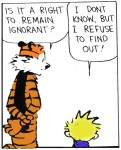It’s name is Scott Lewis. He has “borrowed” over $30,000 from various people by telling tales of financial misery, getting pitying contributions, and then turning on his donors.
Scott Lewis tells many persuasive tales of woe involving former partners and/or friends designed to appeal to his current target’s compassion and desire to make a difference in his life. In hindsight, it should have been an obvious red flag to us that he seems to have an alarming number of these stories. By connecting with each other, we have now realized that many of the stories we had heard about each other were in reality blatant lies, crafted by Scott Lewis presumably to dissuade us from contacting each other. As author Lynn Fairweather puts it, “…an abuser’s prospect becomes an even better potential victim if she’s willing to listen to his tale of woe and offer him sympathy and encouragement, because then he’s hit the jackpot: He’s found a “saver,” a nurturing woman who compulsively takes in troubled souls, blind to the inherent risks to her own well-being”. Each of us have wanted to be “better than all the previous people” when we first entered his life.
Scott Lewis deliberately maneuvers his new target into disliking all his ex partners and previous friends. This is also why we have been silent for so long; for a very long time we were too scared to reach out to anyone else, or speak about what he did to us. We knew that he would always craft his narrative to portray himself in the best possible light while making us look vindictive, petty, and delusional. We were scared that he would reach out to mutual friends first with his own version of the story, to further isolate us and make his deception and abuse less likely to be called out. Since connecting with other victims of Scott Lewis’s abuse, we have been able to see exactly how he distorts the things that he does; the way he minimizes his own role, plays the victim, and pins all the blame on the actual victim instead. We were surprised to realize we each experienced the exact same cycle of abuse at his hands.
I used to be so optimistic about human beings.




